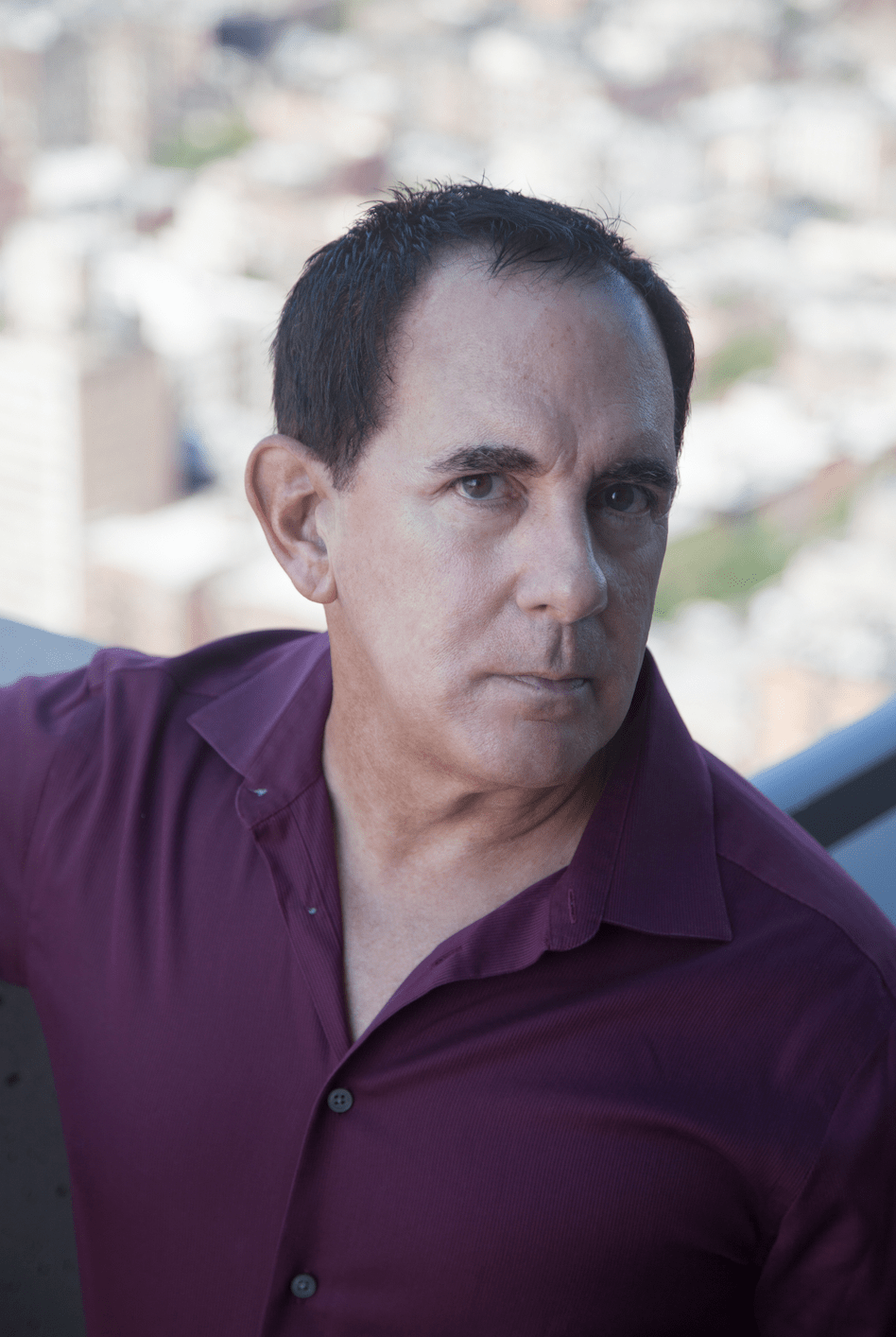Hy Conrad is a crime and mystery writer with many accolades as both an author, as well as a writer for television. He is the winner of a Scribe Award for Best Novel and three Edgar nominations from the Mystery Writers of America. Conrad is probably best known for being a writer for the ground-breaking television series, Monk, where he spent eight years writing for the series. He is currently working on his newest series, Callie McFee Mysteries, with the third book of the series well in the works.
Conrad resides in Vermont and Key West, which he shares with his husband, Jeff, as well as their two miniature schnauzers.
You’re coined to have made a career out of murder, in a non-criminal sense, of course! What was it that first piqued your interest in this field? What are some trends in this genre that excite you most?
I’ve always been fascinated with stories and how they can unfold in surprising ways. I remember in grade school, boring my parents by describing movies or books in detail. That kind of interest naturally lends itself to this genre. Sherlock Holmes and the Encyclopedia Brown books were big influences. But I really got my start when I was approached to write the MysteryDisc, a solve-it-yourself collection of mysteries for the Laserdisc, an early form of interactive technology. From that point, I became the go-to guy for tricky little mystery plots.
The” unreliable narrator” is now a fixture in mystery plotting, and I think that’s a great development. It keeps the readers on their toes. And more and more authors are experimenting with changing the point of view several times in a novel. This opens a lot of possibilities in how you can craft a story and keep it exciting.
Your latest series, Callie McFee Mysteries, currently has two books out, The Fixer’s Daughter and Sins of the Family. Is book number 3 on the way? If so, what can fans expect from that one?
I’m about halfway through writing Book Three and I can’t wait to see how it ends. The title is “The Man on the Bench” and it’s about a homeless man who sits in the park every day and befriends people from all walks of life, including our hero, Callie McFee. They wind up confiding their problems and secrets, and when the man gets murdered, Callie suspects his death might be related to something he was told. It’s easy to start a book with a bang, but I embraced the idea of starting slowly, with a sweet, sympathetic man on a bench. Of course, nothing is what it seems, and that’s where the fun begins.
Can you talk about how you go about developing your characters? Do they ever resemble friends or family in their traits?
I almost always start by asking, “What does the story need?” Does it need someone assertive, or conflicted about his past? Does he need to be adventurous, or would it be more helpful to make him naturally timid? At some point, however, the character takes on a life of his own. There will be things he’ll do and things he won’t, no matter how hard I push him in a certain direction. Very rarely will I base a character on a real person. My real friends are not nearly as interesting or as memorable as I need them to be. Sorry, guys.
Not only were you a writer and co-executive producer for the ground-breaking TV series, “Monk,” but you also authored the final four books of the series as well. Did you find one easier than the other to produce the final product?
The “Monk” TV show was easier in a lot of ways. We had a room of writers coming up with lines and ideas, and we had the great Tony Shalhoub to bring the character to life. A novel also needs a voice and a point of view. It couldn’t be Monk himself, since no one could fathom his thought process, so we had Natalie do the honors. And it wasn’t always easy to try to channel Natalie’s voice.
What special support people do you rely on when you’re working on a project, either book or TV-related? How do they help you?
First, there’s my husband Jeff who reads everything – multiple versions of everything. I don’t know how he does it. In the early days, he would just say how much he loved it. Then I would have to grill him about what worked and what may not have worked. By now, he’s grown into a very savvy and critical part of the process. I also get help from my agent, for TV work, and my editor, for the novels. In the past, I used to give copies to trusted friends, non-writer friends. They wound up taking their assignments quite seriously, and I think it affected their enjoyment of the work, which also affected my confidence in what I had tried to create. So, I stopped doing that.
If you were designing your car’s vanity license plate, what would it be?
Good question. It’s hard for me to try to define myself for all the world to see, which is probably why I never got a tattoo. Florida license plates have six symbols, so I suppose mine would say STORIE.
Follow Hy Conrad on Amazon by visiting:
https://www.amazon.com/stores/Hy-Conrad/author/B001JS3H0M
For Interview Questions Contact Michael Beas at info@atlaselitepublishing.com

